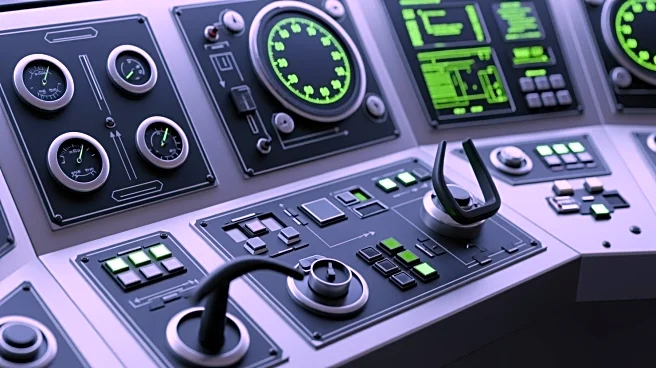What's Happening?
DNV has released a report addressing the security challenges associated with nuclear-powered ships. The report emphasizes the need for robust safety, security, and non-proliferation measures. It suggests that future installations must be designed to withstand
various threats, including collisions and sabotage. The report also highlights the importance of remote monitoring and advanced communication capabilities, along with rigorous cybersecurity measures. Additionally, the International Atomic Energy Agency's safeguards system will oversee all nuclear materials to mitigate proliferation risks.
Why It's Important?
The adoption of nuclear propulsion in maritime settings could significantly impact the shipping industry by providing a cleaner energy source. However, the security challenges outlined by DNV are critical to address to ensure the safe and secure operation of nuclear-powered vessels. The implementation of these measures could lead to increased collaboration among stakeholders, including regulatory bodies and shipbuilders, to develop comprehensive safety frameworks. This could ultimately influence global shipping policies and practices, potentially leading to a shift towards more sustainable maritime operations.
What's Next?
Future steps involve integrating advanced reactor designs into marine settings, requiring collaboration among stakeholders to address unique operational risks. The development of comprehensive safety cases and the establishment of international standards will be crucial. Additionally, the implementation of physical and cyber protection systems will be necessary to manage risks associated with nuclear propulsion. These efforts will likely involve ongoing discussions among international regulatory bodies, shipbuilders, and maritime operators to ensure the safe adoption of nuclear technology in the shipping industry.















